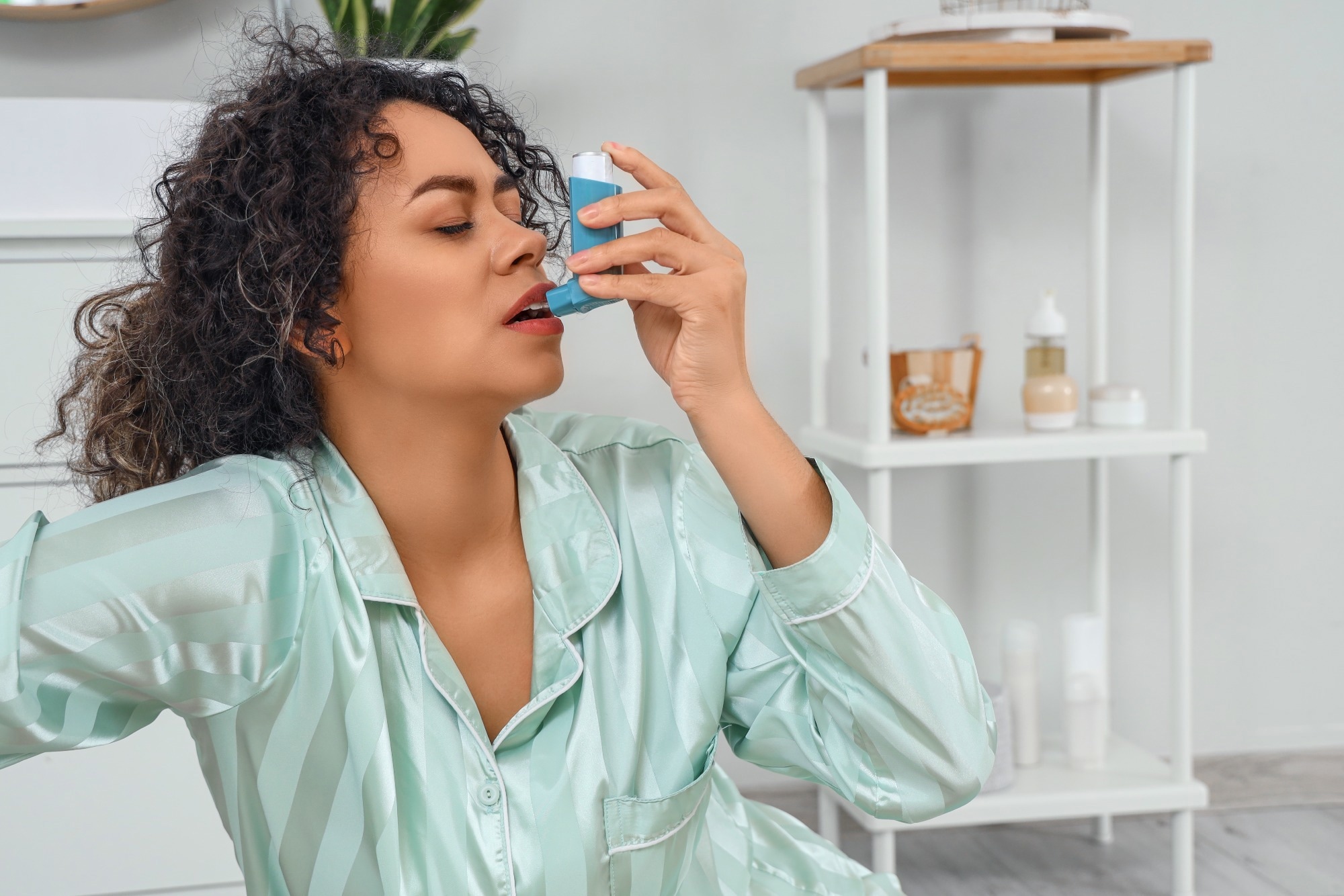Asthma symptoms tend to ebb and flow throughout the day, often worsening overnight. This pattern suggests that aligning asthma medication with the body’s natural rhythm - an approach known as chronotherapy - could improve disease control by enhancing medication effectiveness.
A recent study published in BMJ Journals compared three different dosing schedules across 24 hours to identify the most effective regimen for managing asthma.
 Study: The impact of dosage timing for inhaled corticosteroids in asthma: a randomised three-way crossover trial. Image Credit: Pixel-Shot/Shutterstock.com
Study: The impact of dosage timing for inhaled corticosteroids in asthma: a randomised three-way crossover trial. Image Credit: Pixel-Shot/Shutterstock.com
Introduction
Asthma affected over 260 million people globally in 2019 and was responsible for 455,000 deaths. Notably, symptoms worsen overnight in approximately 75% of individuals with asthma, and 80% of fatal episodes occur during the night.
This trend is attributed to increased airway obstruction and inflammation, along with heightened airway hyper-responsiveness during nighttime hours.
Patients who experience pronounced day-to-night symptom fluctuations and significant drops in nighttime lung function are more likely to have severe, hard-to-control asthma - and face a higher risk of mortality.
Adding to this, previous research has shown that glucocorticoid receptor sensitivity to steroids decreases at night, with peak responsiveness occurring around 4 pm and the lowest sensitivity around 4 am, as reported by the authors of this new study.
While earlier chronotherapy studies have largely focused on daytime lung function, results have been mixed. This new research aimed to more comprehensively assess how the timing of inhaled corticosteroids affects asthma control over a full 24-hour period - using both lung function measurements and biological markers.
About the study
The study involved 21 participants with mild to moderate asthma who shared similar sleep-wake schedules. Baseline and post-treatment assessments included lung function tests and levels of fractional exhaled nitric oxide (FeNO), a marker of airway inflammation. Researchers also measured serum cortisol to evaluate adrenal suppression.
This was a three-arm crossover trial using beclometasone dipropionate, delivered in varying dosing regimens:
- OD-AM group: 400 µg once daily between 8 am and 9 am
- OD-PM group: 400 µg once daily between 3 pm and 4 pm
- BD group: 400 µg split into two doses - between 8 am and 10 am, and again between 8 pm and 11 pm
Each treatment phase lasted 28 days, with a two-week washout period between regimens. Lung function tests and biomarker measurements were conducted before and after each arm.
The researchers also employed modeling techniques to simulate 24-hour variations in asthma pathophysiology, allowing them to estimate the amplitude of these fluctuations more precisely.
Key findings
All three regimens improved asthma control and reduced airway inflammation. However, the OD-PM (afternoon) regimen stood out.
- Lung Function: FEV1 (forced expiratory volume in one second) showed the most significant improvement at 10 pm in the OD-PM group, with an average increase of 160 mL. By contrast, the OD-AM group saw a slight decrease of 20 mL. While the overall differences were modest, about half the participants in the OD-PM group experienced gains of more than 100 mL.
- Inflammation: The OD-PM regimen also achieved better control of overnight eosinophilia - reducing levels below 0.2×10⁹ cells/L, a threshold linked to increased asthma exacerbations. This effect was seen both at 10 pm and 4 am.
- Safety: Importantly, serum cortisol levels measured at 10 am were similar across all regimens, indicating no added adrenal suppression with the afternoon dosing. No group experienced a greater need for reliever medications or more adverse effects.
These results support earlier studies suggesting that mid-afternoon is the optimal time for administering inhaled or oral glucocorticoids. This study adds a new layer by showing both physiological and immunological improvements over a full day with an afternoon dosing schedule.
Another takeaway: lung function and biomarker levels can vary significantly over 24 hours, so timing should be considered when interpreting test results.
Conclusion
While inhaled corticosteroids provide benefits regardless of timing, this study suggests that a single 4 pm dose of beclometasone dipropionate may offer superior control of nighttime asthma symptoms and inflammation - without increasing side effects or suppressing adrenal function.
These findings make a strong case for adjusting asthma treatment to fit the body’s natural rhythm. Future research should confirm these results in larger populations and determine which patients stand to benefit most from this chronotherapy approach.
Journal reference:
-
Wang, R., Maidstone, R., Singh, D., et al (2025). The impact of dosage timing for inhaled corticosteroids in asthma: a randomised three-way crossover trial. BMJ Journals. doi: https://doi.org/10.1136/thorax-2024-222073.